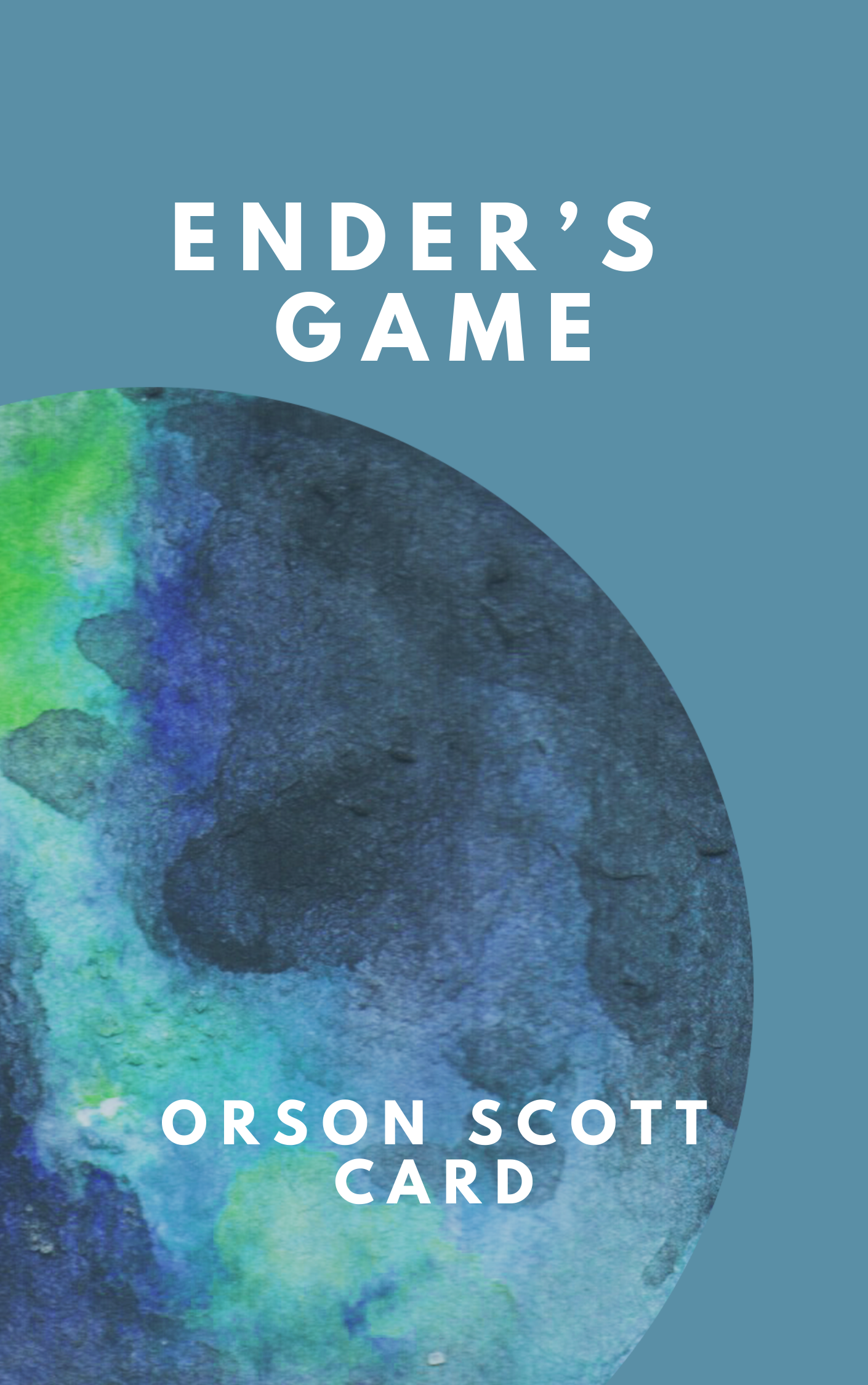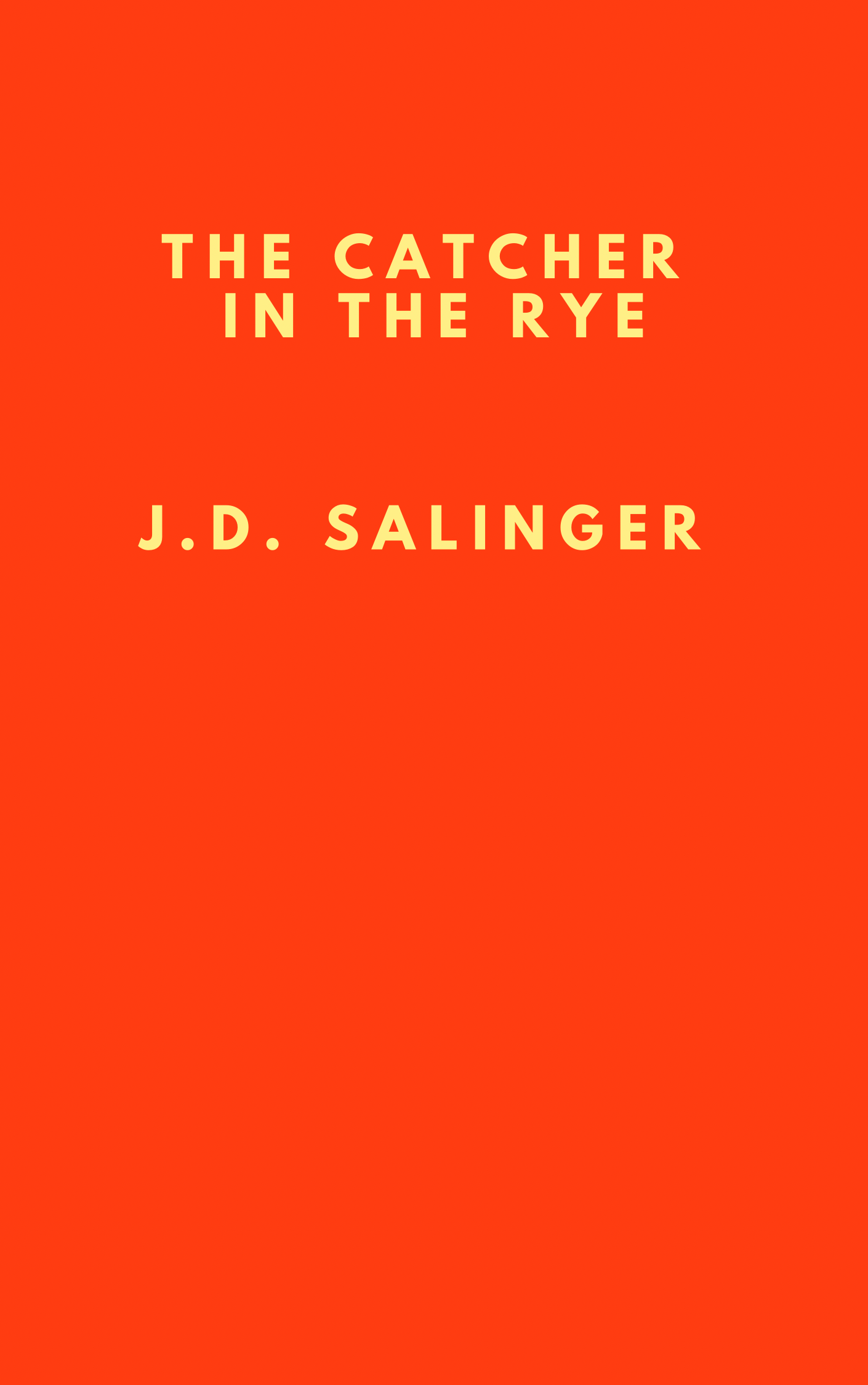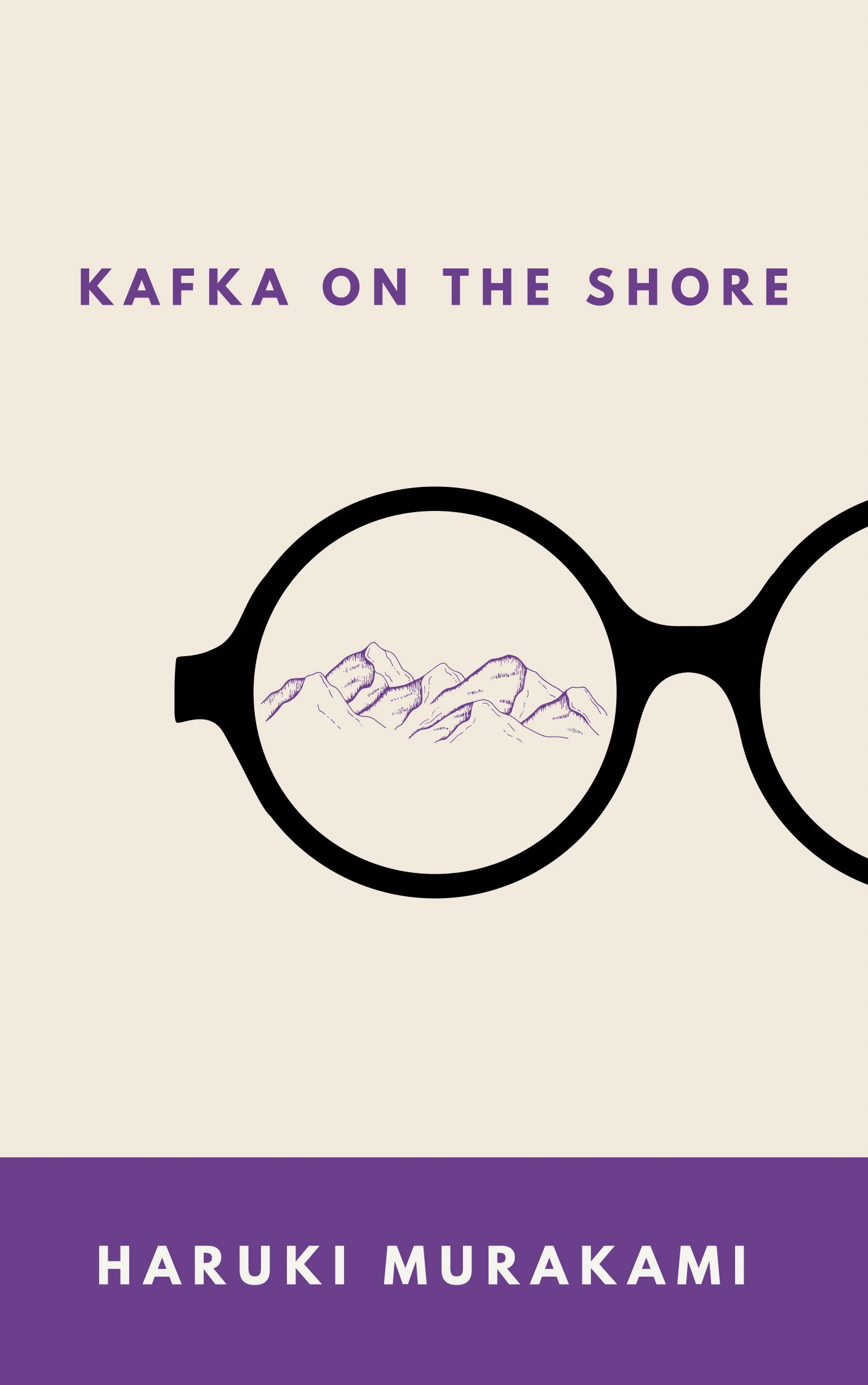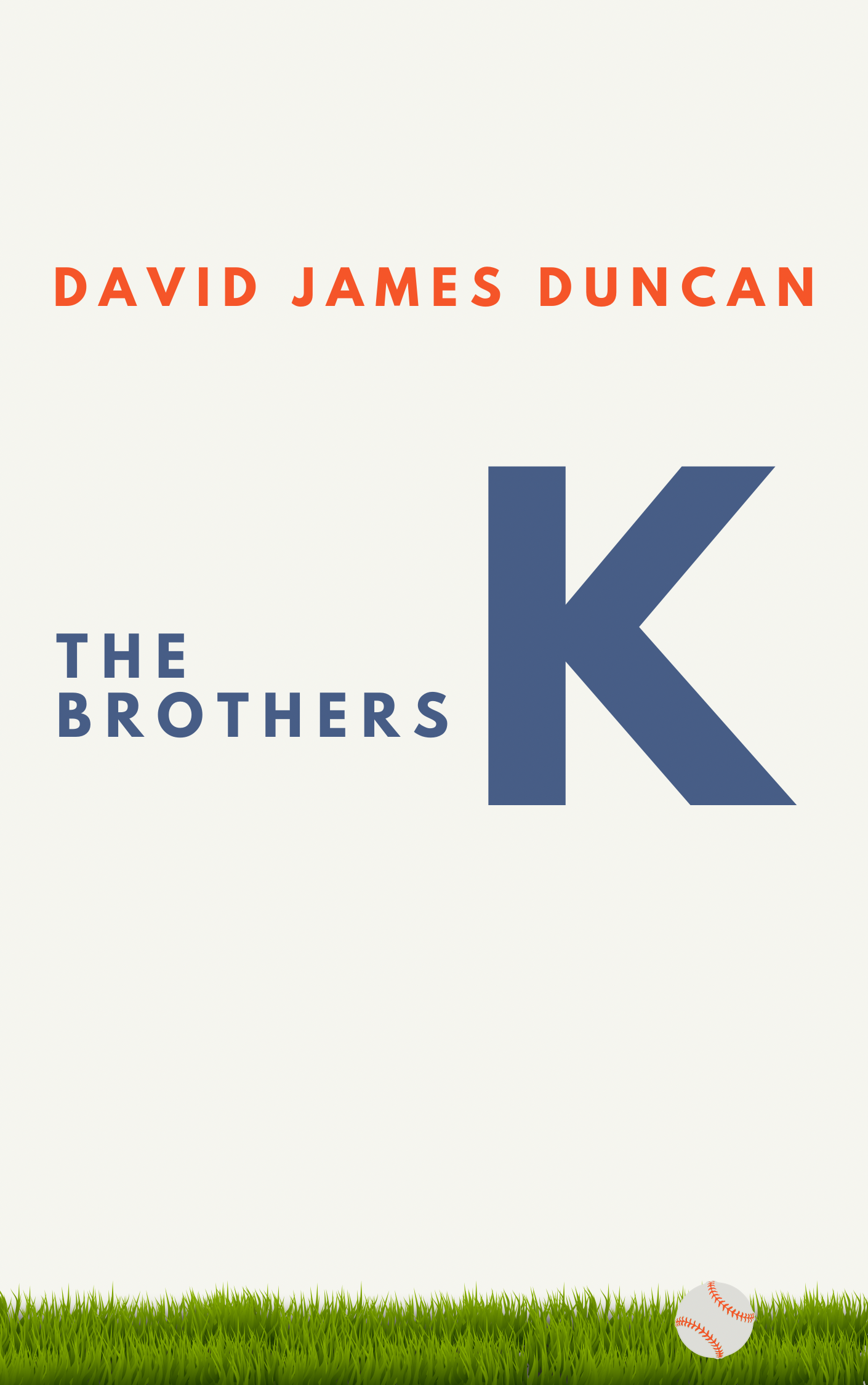My Top 5 Books & How They’ve Influenced My Writing
Lauren and I were recently talking about the Accelerated Reader programs we had in elementary school and how awesome they were. I remember trying to read the shortest books with the highest amount of points. I wasn’t a big reader when I was younger. I think Lauren read Dunewhen she was seven years old or something. Different approaches to the same game.
I started thinking about reading and when everything changed for me. There was a definite moment in my childhood where something started to click when it came to books. I thought I’d share with you all my top five favorite books and they each influenced me as a reader and writer. (This is my top five now, it will probably change next week...but not by much.)
[For more content like this from Mark Apel please join his mailing list at https://markapel.ck.page/]
NO. 1
Ender’s Game ‑ Orson Scott Card
This was the change. It was seventh or eighth grade and we had just finished reading a book that I cant even remember the title because it was so boring. My teacher brought out a cardboard box full of fresh books. I was discouraged. I couldn’t subject my distracted middle school mind to another prairie story. She said today we are going to start reading a sci‑fi novel. Ender’s Game. I thought it was going to be cheesy at first. Everything changed for me once I stepped into the battle room with Ender. If you have read this book, you get it. For me, it was the most imaginative thing I had ever read. But at the same time, it was the most like-minded thing I had ever read. It felt like a game I had always wanted to play. It reflected the countless games we had invented in our back yard throwing pines and tagging each other except with lasers and zero gravity. I was hooked. I can still vividly see that room. After I finished Ender’s Game I understood the power of reading. At least a little bit. I didn’t turn into an avid reader over night, but something clicked in me because of that book. Orson Scott Card has a unique ability to write sort of “flat” characters into interesting social dilemmas that bring out their true self. His ability to pose a problem and then find a solution has definitely shaped the way I think about plot. If you haven’t ever read Ender’s Game, do it. There are several books in this series and if you like inventive SCI‑FI its a must!
NO. 2
The Catcher In The Rye ‑ J.D. Salinger
This may be my favorite book of all time. Although, I do find it funny that this book finds its way onto some middle school reading lists. It's a little PG for that age I think, but to each their own. Catcher changed so much for me as a reader and writer because I constantly felt like Salinger was breaking all of the rules. It felt as if Holden was saying the things that we only wished we were bold enough to say. I think this is why people love Holden. He is smart, reckless, arrogant, and a bit unorthodox. What I was never able to shake was Salinger’s mastery over the first person perspective. The way we see the world through Holden’s brain felt like listening to family members telling stories over the breakfast table. As the years go by those stories change and shift. It's unreliable, but it’s perfect. There is a moment in CITR that Holden mentions being a deaf‑mute that I loved. Pardon the language...it’s Holden Caulfield.
“I thought what I'd do was, I'd pretend I was one of those deaf‑mutes. That way I wouldn't have to have any goddam stupid useless conversations with anybody. If anybody wanted to tell me something, they'd have to write it on a piece of paper and shove it over to me. They'd get bored as hell doing that after a while, and then I'd be through with having conversations for the rest of my life. Everybody'd think I was just a poor deaf‑mute bastard and they'd leave me alone . . . I'd cook all my own food, and later on, if I wanted to get married or something, I'd meet this beautiful girl that was also a deaf‑mute and we'd get married. She'd come and live in my cabin with me, and if she wanted to say anything to me, she'd have to write it on a piece of paper, like everybody else”
I lifted that idea and wrote a short and maybe trite story of my own while in college. It’s titled “Eugene” and if you are interested you can read it here.
If you haven’t ever read any Salinger I strongly suggest this book or Nine Stories, which may be the best book of short stories ever written.
NO. 3
Nine Horses ‑ Billy Collins
I think one book that I have left off this that will probably make the honorable mentions list is Walt Whitman’s Leaves of Grass. I used to carry that book everywhere with me in hopes that I would find some remote place with a cozy shade tree to kick my shoes off underneath and read a few poems. That didn't really ever happen. But Whitman was my first true love when it came to poetry. I had a few flings with Seuss and Silverstein, but nothing as significant as Whitman. But then entered a simple voice. I heard someone reference this Billy Collins and was hooked after reading his poem “Litany.” I’ll admit that I didn’t understand the sarcasm of the poem until I heard him read it. I think what Collins taught me is that humor has a place in serious poetry. I have always thought that if you can make someone laugh, then you have their trust. Collins captures trust easily. His no‑nonsense invite to the reader is simple, yet so hard to reproduce. (Believe me, I have tried. I still try all of the time.) His book Nine Horses was the first of his I purchased. He does an intro to every book and instead of a typical “about the book” preface, he writes a poem. It's like a warning for the reader. A “here is what I am about to do,” kind of thing. Check out his poem “Night Letter To The Reader” to see how Collins simplifies his goal as a poet into simply wanting to show you something. Reading Collins showed me that it is ok to write something that isn’t coded or trying to trick the reader. From that point on, my goal with my poetry has been to simply show and make connections that maybe the reader hasn’t already made for themselves.
NO. 4
Kafka On The Shore ‑ Haruki Murakami
Ok, this is a weird one. A friend of mine told me his favorite writer was Haruki Murakami. I had no idea of who that was. He said if you ever read his novels to start with Kafka On The Shore. It is like the Ok Computer entry into Radiohead. It wasn’t their first, but for some reason it is the best place to start. Kafka On The Shore reads like someone is trying to tell their dream in extreme detail. A dream that spans the course of a few weeks. It has been long enough now that I don’t remember all of the craziness that is this book. But I remember when I finished it I knew I had stumbled upon something unique and great. Most of Murakami’s work is like this for me. It has showed me that you can write whatever you want. Anything. No matter how weird or inconsistent.
This book opens with a scene where kids get sort of abducted by aliens or something and then it is never mentioned again in the story, And for some reason it works and makes the story that much more interesting to me. He even uses Colonel Sanders as a prominent character in this novel as well. Yes, the chicken Colonel Sanders. Somehow it works just fine. The story with Murakami goes something like this: He was in his thirties at a pro baseball game in Japan and had the thought that he wanted to write a novel. So he did. That is it. Within years he had become one of Japan’s most well known modern writers if not the the most well know Japanese writer. His life and his stories have taught me to never doubt myself when I have a new idea and desire to do something. Just do it. No matter how weird it is.
Disclaimer: Haruki Murakami tends to write a decent amount of sexuality into his work. If this is triggering in any way you might move on to something else.
NO. 5
The Brothers K ‑ David James Duncan
If there is anything I have learned from David James Duncan it is that there will always be someone better than you writing books you could only dream of writing. Another buddy of mine said this was his favorite book. I trust his literary tastes and had to give it a shot. About halfway through, I knew this was probably going to be my new favorite book of all time. The story centers around a family and each of the children of this family. The father is a minor league baseball pitcher who is a bit washed up and trying to find his pitching arm again. I found myself looking up video after video on YouTube after each chapter to learn more about different baseball pitches and what they look like. One thing Duncan does so well is build an entire novel on little moments, He shows these deeply flawed, multi‑dimensional characters living out these small moments together that in the end combines into the best book ever written. It seems almost as if character is more important than plot to Duncan. Or that he builds such dynamic characters that no matter where the plot goes the story will be fine. There is a super random scene with an otter in this book that almost made me cry. (I don’t cry when I read so that is a big deal.) Duncan snuck that scene in there and it nearly broke me. Read this book. Today.
HONORABLE MENTIONS:
Hatchet - Gary Paulsen
I remember reading this book in the back of a car with a book light all the way to my grandparents. Incredible.
Leaves of Grass - Walt Whitman
This was his only work that he continued to add onto throughout his life. Poems to read include: “When I Heard The Learned Astronomer,” “Song of Myself,” and “O Me, O Life!”
The Goblet of Fire - J.K. Rowling
I think it was this book in the series that I accepted that JK Rowling is a genius. I, to this day, do not understand how she was able to build a world that was so huge and believable based on magic and wizards. Incredible.
Nine Stories - J.D. Salinger
In my opinion, this is the best book of short stories ever.
Austerlitz - W.G. Sebald
Sebald's prose is the most beautiful.




